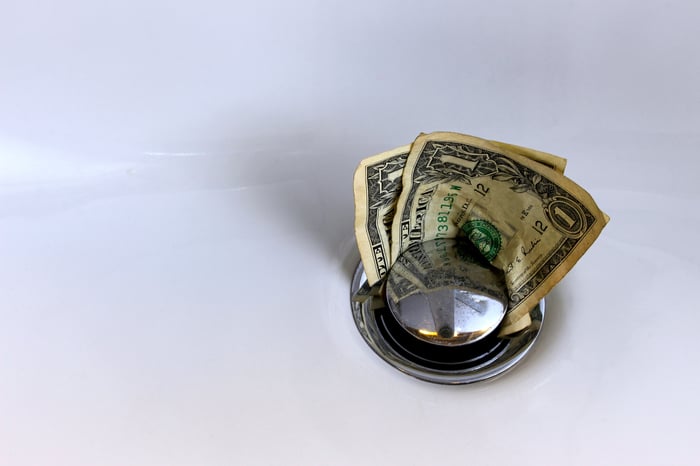Real estate investment trusts (REITs) are meant to pass income on to investors and, thus, should really be conservatively managed. Only that's not exactly what you'll get from Global Net Lease (GNL 0.53%), Farmland Partners (FPI -0.35%), and Whitestone REIT (WSR 0.65%). If you own this trio of REITs, here's why you might want to dump them, as well as three alternatives that are likely to be more reliable over time.

Image source: Getty Images.
1. Going global the safe way
Diversification is good for your portfolio, and it's good for a REIT's portfolio, too. So, on the surface, you'd think that Global Net Lease would be a slam-dunk investment option, particularly given its hefty 11.3% dividend yield. Only that outsized yield reflects the risks of this aggressively managed REIT.
NYSE: GNL
Key Data Points
On the positive side, Global Net Lease spreads its portfolio across the industrial (54% of rents), office (42%), and retail sectors (4%). Roughly 40% of rents, meanwhile, are derived from outside the U.S. But the externally managed REIT ended up cutting its dividend in 2020 and still has a fairly high adjusted funds from operations (FFO) payout ratio of 90%. Adjusted FFO, meanwhile, fell slightly between 2020 and 2021, which is the exact opposite of what you would expect, given that the pandemic was such a headwind in 2020.
Investors looking for more consistency would probably be better off with larger, more diversified peer W.P. Carey (WPC 1.49%), even though its yield is only 5.4%. Unlike Global Net Lease, W.P. Carey has increased its dividend every year since its initial public offering in 1998, including each quarter in 2020.
2. Farms the simple way
Next up on the house cleaning list is Farmland Partners, which owns exactly what its name implies -- farms. However, there are a couple of problems here.
First, the company is still dealing with the fallout from a short-seller report that caused it to cut its dividend in 2019. The second, bigger issue is that the REIT recently agreed to buy a company that will expand its business to include things like farmland brokerage and farm management. The goal is for the REIT to become a one-stop shop for anyone looking for farm services, which is great. But it is no longer a simple REIT story.
If you want to own farmland and simply collect rent checks, you will have to look elsewhere. The best option would likely be peer Gladstone Land (LAND 1.27%), which is focused on owning farms that grow things like fruits, vegetables, and nuts.
That said, Gladstone Land's stock has shot up of late, and the yield is near its historical lows at 1.8% or so. That's around what you'd get from Farmland Partners, without the added complications of the services business.
If you want to maintain the farmland exposure, this shift could end up being a net benefit. But, given the big run, you might want to consider moving out of Farmland Partners and just putting Gladstone Land on your wish list for the next broad sell-off.
3. Better options are available
Whitestone REIT owns strip malls. It is a tiny player in the industry, with a market cap of just over $600 million. While its Sun Belt focus might be of interest to some, it really only has operations in Arizona and Texas, making it highly concentrated. And on top of that, Whitestone REIT ended up cutting its dividend in 2020.
While the actual assets it owns might be just fine, there are negatives here that you can easily avoid by owning one of this REIT's larger peers. And with a roughly 3.9% yield, you aren't really getting paid much to stick around here anyway.
One alternative includes the Dividend King, Federal Realty Investment Trust (FRT 1.72%), which also has a fairly small portfolio but is filled with great assets in top-tier markets around the country. Notably, this sharpshooter has a longer dividend streak than any other public REIT. It yields 3.7% or so.
Kimco (KIM 2.08%) and Regency Centers (REG 2.04%) are two other options, sporting 3.3% and 3.8% yields, respectively. Both have large regionally diversified portfolios, including assets in the Sun Belt, for those who believe bigger portfolios are better. Any one of this trio is likely to be a stronger option for conservative income investors over the long term.
Go with the best
I could argue that Global Net Lease, Farmland Partners, and Whitestone REIT are just bad REITs to own, but the truth is that would really depend on the investor. However, for most income investors, there is a strong case to be made that there are better alternatives. And as you get ready to spring-clean your portfolio, you might want to take a look at some of those other options if you own this trio. Sometimes, trading up makes total sense.




